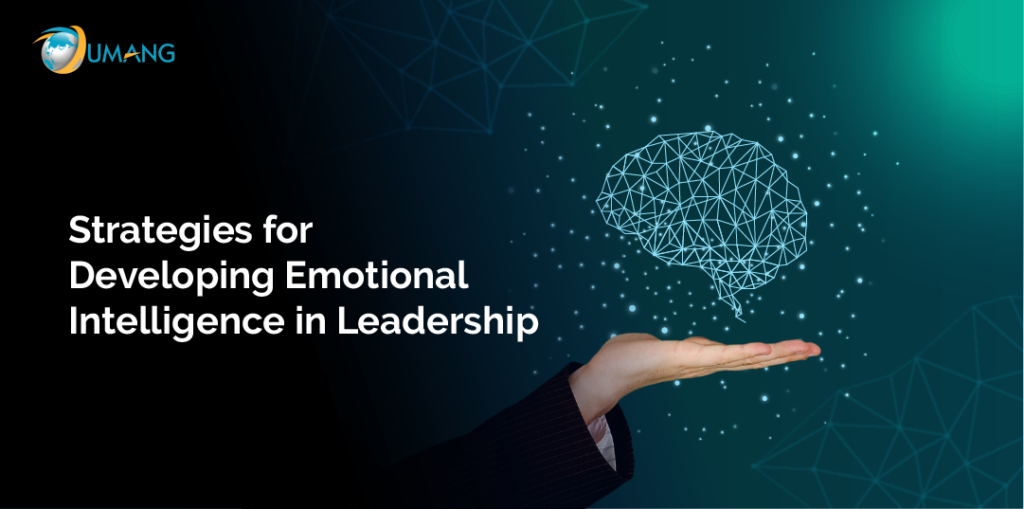No one is a born leader. Everyone has to start from scratch, learning and developing leadership qualities, improving skill sets, increasing socialization ability, and many more. Being a leader isn’t just about giving instructions to the followers or the team members. Instead, it is a huge responsibility that comes with numerous roles. For instance, it is the job of the leader to maintain harmony and peace amongst others, lead the team and every individual in the right direction, support and appreciate others for their small contributions, and set an example or inspiration.
As a leader, you not only need to have a sense of accountability and managerial skills but also master emotional intelligence. Understanding, recognizing, and controlling your emotions and that of others is important to succeed as a leader and become a role model for others. Unless and until you have control over the emotions, your leadership will become questionable. Considering this, the below discussion will shed light on how you can become an emotionally intelligent leader.

How is emotional intelligence measured?
It is your duty to measure your emotional intelligence to become a leader whom everyone will respect and trust in the long run. But it is easier said than done. In most cases, leaders try a few assessments to know if they are capable of handling their and others’ emotions or not. For instance:
- Wong’s emotional intelligence scale: It is used to determine the leader’s ability to assess and understand the personal and surrounding emotions at critical situations.
- Emotional and social competence inventory: This assessment allows a person to understand what others think of their ability to deal with emotions when it comes to leadership.
- Mayer-Salovey-Caruso emotional intelligence: Here, the leaders need to complete four tasks to understand their standing in assessing, handling, understanding, and identifying emotions.
Why is emotional intelligence important in leadership?
Most often, people often tend to ignore the risks of not being able to handle emotions when fulfilling the responsibilities of a leader. As a result, they often find themselves in tough situations, with no way out. Additionally, the lack of emotional intelligence makes them vulnerable, causing others to lose faith in the leaders. This is why the following section will briefly introduce the benefits of developing emotional intelligence in leadership.
- Having control over one’s own emotions and that of others allow leaders to eliminate emotional distress and anxiety amongst the team members.
- Decision-making skills greatly improve when a leader develops emotional intelligence. As a result, it becomes easier to take critical decisions for the benefit of all.
- Also, emotional intelligence allows leaders to understand and acknowledge the contributions or work of others, regardless of how meager they are.
- Emotional intelligence helps leaders become innovative and inspire all other members to work hard for the betterment.
Strategies and tips to develop emotional intelligence for leadership
Now, developing emotional intelligence without any prior plan can take a toll on mind. This is why we have described a couple of strategies that can yield the expected result and allow you to become a true leader.
1. Boost motivation
One of the best ways to develop emotional intelligence is through motivation. It helps you to focus on achieving long-term results and not ponder over short-term failures. You become more capable of dealing with emotional stress when suddenly your decision leads to a failure. As a result, you can stay more focused and concentrated on long-term goals and achieve success in leading your team towards glory.
2. Cherish empathy
As a leader, you should understand that there is a great difference between sympathy and empathy. You need to be more empathic towards yourself and all other team members, no matter what the situation is. Social awareness is important to show empathy in understanding others and what struggles they are facing. Put yourself in their shoes to know what they are going through and you will be able to make the right decisions for everyone’s betterment.
3. Maintain a positive attitude
Your leadership skills should be put to good use. It is important for a leader to assert coercion to get the work done. But this does not mean that you will reprimand others for the smallest mistakes or won’t consider their opinions on any matter. A person can become a true leader when he walks forward with others and maintains positivity amongst everyone. So, value others’ emotions and always promote a positive culture.
Bring your A-game as a leader with emotional intelligence
Emotional intelligence is truly a game changer, especially when you take the role of a leader. It helps you combat distress caused due to an onslaught of emotions at different situations. Additionally, you can become more focused, eliminate distractions, and embrace empathy for yourself and others. But it is not easy to deal with emotions when you have such a huge responsibility to fulfill. So, the strategies that we discussed here will certainly help you to keep yourself and your team motivated for long-term goals, promote positivity, and manage emotions.